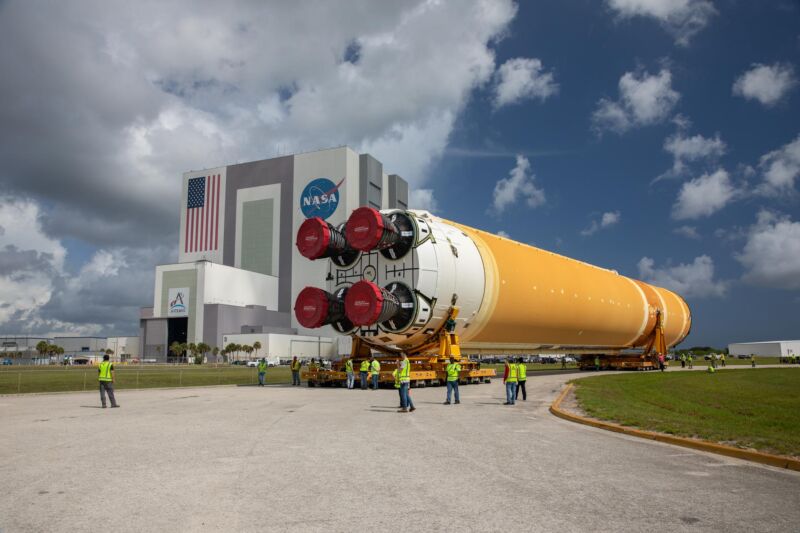Rocket Report: ABL loses its second booster; Falcon 9 cleared for return to flight

Welcome to Edition 7.04 of the Rocket Report! Probably the most striking news this week came from ABL, which said in a terse social media statement that it had lost its second RS1 rocket during pre-flight testing. This is unfortunate, since the company had been so careful and meticulous in working toward this second launch attempt. It’s a reminder of how demanding this industry remains.
As always, we welcome reader submissions, and if you don’t want to miss an issue, please subscribe using the box below (the form will not appear on AMP-enabled versions of the site). Each report will include information on small-, medium-, and heavy-lift rockets as well as a quick look ahead at the next three launches on the calendar.

ABL loses rocket after static fire test. ABL Space Systems said Monday that its next rocket had suffered “irrecoverable” damage during preparations for launch. “After a pre-flight static fire test on Friday, a residual pad fire caused irrecoverable damage to RS1,” the company said on the social media site X. “The team is investigating root cause and will provide updates as the investigation progresses.” As of the writing of this report three days later, the company has not posted any additional information.
Not particularly promising … This is a serious setback for the launch company, which attempted the debut flight of its RS1 vehicle 18 months ago and had been preparing for this second attempt for a long time. The California-based company had been keeping a low profile and had not made a social media posting since May. The RS1 vehicle is advertised as having a lift capacity of 1.35 metric tons at a price of $12 million. During ABL’s initial launch attempt in January 2023, an anomaly in the rocket caused all nine of the RS1’s first-stage engines to shut down. (submitted by Ken the Bin)
Point-to-point company test-fires engine. A space transportation startup with visions of high-speed point-to-point travel has started tests of the engine that will power their vehicle, Space News reports. Frontier Aerospace test-fired its Mjölnir engine on July 18, its chairman, Alex Tai, said during a panel discussion at the Farnborough International Airshow. Mjölnir is a full-flow staged combustion engine. The firing lasted less than a second but demonstrated the startup of the turbopumps and successful ignition.
Starting with a smaller version … The company plans to do longer engine burns as part of the testing program. The version of Mjölnir currently being tested produces less than 3,000 pounds-force of thrust. New Frontier plans to use a much more powerful version of the engine on a vehicle called the Intercontinental Rocketliner, a suborbital vehicle intended to carry 100 people on high-speed flights around the planet at hypersonic speeds. (submitted by Ken the Bin and EllPeaTea)
Ursa Major invests in Ohio. Ursa Major will buy several industrial 3D printers and hire 15 new employees for a research and development center in Youngstown, Ohio, focused on additive manufacturing, Payload reports. The Colorado-based rocket engine maker will contribute $10.5 million in capital investment alongside a $4 million grant from JobsOhio, a privately funded economic development nonprofit. The expansion of a small existing facility will enable the company to step up its development of solid rocket motors—a top priority for the Department of Defense.
The war needs what it needs … In April, Ursa won a contract of undisclosed value from the Navy to develop a lower-cost manufacturing approach for the standardized solid rocket motors used across a range of missiles. The US supply chains for those motors—mainly provided by Northrop Grumman and L3Harris—have been stressed by US support for Ukraine’s defense against Russian invaders. In November, Ursa raised $138 million to support its push into solid rocket motor manufacturing in a round that reportedly valued the company at $750 million.
https://arstechnica.com/?p=2039318